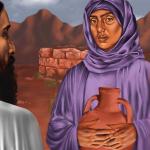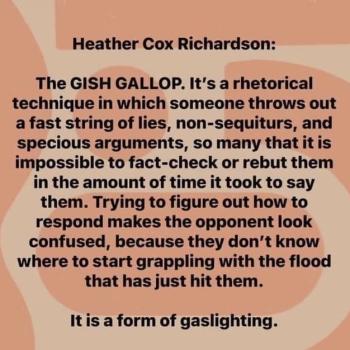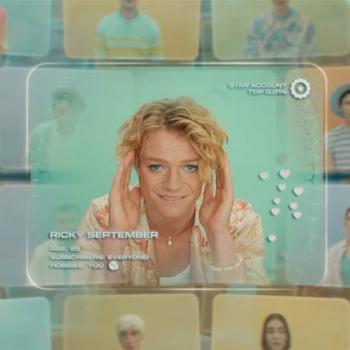The news has been full of news about longstanding names and images being changed, their racist depictions and caricatures having at long last become unacceptable to a sufficient number of people. An American football team called the “Redskins” will change its name and logo from the current one, an ethnic slur aimed at indigenous people. A Dr. Seuss book that will no longer be printed had already been revised so that the Chinese character no longer had yellow skin.
Teaching my class on the Bible and music caused me to notice an example that seems to have flown under the radar and avoided attention in relation to this same issue. And what is and isn’t considered acceptable today is also, I think, highly instructive. As you probably already guessed from the title of the blog post, I am referring to the children’s song “Jesus Loves the Little Children” which features the words “red and yellow, black and white, all are precious in his sight.”
I am struck, on the one hand, by the fact that no one to my knowledge has made any kind of comment to the effect that a song like this ought to be avoided or revised. Perhaps this is due to the desire to avoid riling up conservative Christian loudmouths, trolls, and hecklers. Conservative Christians are famous for hypocrisy of a variety of kinds, but at the moment the most obvious and timely is their tendency to complain about “cancel culture,” by which they mean not being given a platform to say whatever they want wherever they want, after having spent the entirety of that tradition’s existence silencing, excommunicating, deplatforming, revoking ordinations and memberships, and sometimes even engaging in violence or executions of those whose teaching they did not deem sound. But now when there is a widespread move to stand up to such bullying, they call it inappropriate censorship when they are deprived of whatever bully pulpit they think they have a right to.
On the other hand, while “red and yellow” seem grating, American society is currently fine with “black and white.” Yet that terminology is every bit as problematic. Neither term is a fitting literal description of the shade of skin pigmentation of the historic peoples of either Europe or Africa, any more than the now-avoided terms fit the indigenous peoples of the Americas or Asia. Moreover, in an era when segregation and isolation are less frequent, people are often of mixed ancestry. It is only due to the history of racism, white supremacism, and eugenics that someone who is a mixture of “white” and “black” ancestry is “black” rather than “white” or even “grey.” The terminology has inherent in it the idea that any addition of blackness colors the default pure whiteness and renders it “black.” I have no issue whatsoever, just to be perfectly clear, with people celebrating their identities and traditions. I do, however, have problems with the perpetuation of terminology, labels, and categories that are not only ill-fitting, but steeped in the racism that gave rise to them and help to perpetuate it.
What do you think? Is it time to retire the song “Jesus Loves the Little Children”? Should we substitute other words? Many conservative Christians have been happy to reword songs to suit their tastes (whether to drop “rapture” from “To God Be The Glory” or to eliminate the “sloppy wet kiss” from “How He Loves). I would hate to see this popular song disappear altogether when it is so widely known that it is probably sung in places where its message is not fully embraced, but where it plants subversive seeds that may serve to foster inclusivity even in congregations and communities with legacies of racism.
But what words would fit and are as catchy? “All the differences you see, are God’s lovely tapestry” may be too cheesy and not memorable for children. What about “Every shade of skin and hair, God’s creation in his care”? Or “Rainbow colors of the light, all are precious in God’s sight”? Surely someone can do better. But would even the worst of my suggestions be better than the words as they are?
I was going to say that I realize I am stepping into a minefield in broaching this topic. Tinkering with a beloved children’s song is in some places more likely to meet with fierce opposition than merely being a heretic. But as I thought about how to word what I would say, I recalled that minefields of the literal sort still exist in the world despite treaties and bans and all kinds of efforts to make them a thing of the past. Comparing risking a debate to something so serious seems inappropriate.
See how easy this is? Why label it self-censorship or something else negative, when it is something positive, an effort to show respect for real human beings and serious issues?
Let me also say that if anything I wrote above were contrary to the rules and principles that are in force for Patheos bloggers, they would be within their right to shut down my blog and revoke my participation in this wonderful site. That is their prerogative. It wouldn’t be censorship. It would be precisely the kind of freedom that conservatives defend and advocate for when it serves their interests and works in their favor.
Of related interest: There is debate in the Netherlands about the appropriateness or otherwise of someone who isn’t black translating Amanda Gorman’s poetry into Dutch.













